Tourism Barometer: Data adds up and down
Sofia Echo Com, 01.08.2005
THE flow of foreign tourists visiting Bulgaria increased by 5.6 per cent in the first half of 2005, compared with the same period last year. In June alone, the flow of foreign tourists increased by 11.5 per cent year-on-year, according to figures from the International Committee of Tourism, which were reported by the Bulgarian News Agency BTA on July 21. Greek tourists account for the greatest number of foreign visitors to Bulgaria, with 323 440, followed by Macedonians with 266 276. There was also a large influx of tourists from Serbia-Montenegro, Germany, the UK and Turkey. The flow of Romanians visiting Bulgaria nearly halved to 63 278. There was also a decrease in tourists from Russia, Israel, Sweden, the Czech Republic and Ukraine. Proceeds from tourism in the first half of 2005 excluding transport revenues, totaled 440.6 million euro, seven per cent more than the same period in 2004. Bulgarian tourists abroad spent 285.4 million euro, or 4.31 per cent more year-on-year. Turkey was the top destination for Bulgarian tourists, followed by Greece, Serbia-Montenegro, Germany, Macedonia, Romania and Italy. Information from the International Committee of Tourism shows that the growing flow of EU tourists to Bulgaria exceeds that of tourists from other countries. The number of tourists from the EUís new members doubled. The data showed that despite the problems with ongoing construction in seaside resorts, Bulgarian tourism is still seeing major growth. The report said that if the favourable trend persisted in the next months, the forecast of a 10-12 per cent annual growth may occur. Economic and Social Council (ESC) President Lalko Dulevski discussed problems in the industry at a news conference on July 21. About 80 000 workers in the tourism industry do not have employment contracts, leading to a loss to the state of 120 million leva in unpaid taxes from the grey sector. The council approved a draft opinion urging Parliament and the Government to take urgent action to bring legislation and practice in the tourism sector into conformity with current EU recommendations, and with the countryís natural, historical and cultural assets. Seaside tourism takes up 75 per cent of the industry. According to the ESCís draft strategy, the ratio of seaside tourism to other types should drop to 60:40 in the next five years. The lack of any such strategy for the last 15 years has caused the chaotic construction on the Black Sea coast, ESC member Donka Sokolova, chairperson of the Bulgarian Association of Travel Agents, said. Legislative chaos, lack of investment and a lack of foreign advertising were parts of the problem, she said. Only nine million leva had been budgeted for advertising as of the end of last year. Sokolova said that five per cent of earnings must be set aside for tourism advertising. For 2004, tourism earnings amounted to $1.8 billion or about one per cent of Bulgariaís GDP. Experts in the industry agreed that a National Publicity Fund should be established, which would be half-financed by the national budget and half-financed by fees in the sector. It would be managed by the National Tourism Board. The tourism industry lacks trained and qualified personnel and a targeted state policy, experts said. They also said civil society does not participate in the management of structural funds. They proposed the establishment of a separate Ministry of Tourism, a permanent committee on tourism in Parliament, and a National Tourism Board as a public body within the Government. A unified tourism register has also been proposed. Currently, a tourism register features 450 hotels along the Black Sea coast. Nearly 100 more have applied for inclusion. The new register would be completed next year. Since April, officials from the National Agency on Tourism have examined more than 150 hotels. Often, hotels cannot produce official documents, or lack proper security and emergency exits. Travel agents often cannot show licenses for their staffís qualifications and language skills. see source
 Member of:
Member of:
















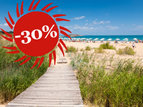

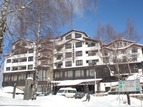
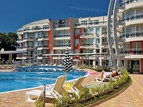

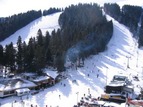
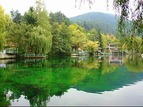
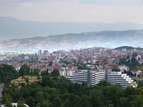



 Touroperator
Touroperator
